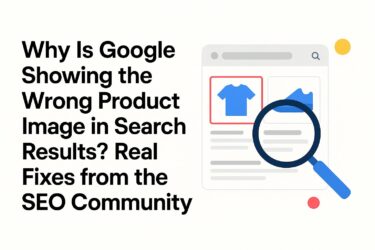Search engine optimization (SEO) is a powerful tool to improve your website’s visibility, attract organic traffic, and grow your business. However, not all SEO practices are created equal. While white-hat SEO focuses on ethical, sustainable methods, black-hat SEO involves manipulative techniques designed to exploit search engine algorithms. These harmful tactics might deliver short-term results but can lead to severe penalties, such as a drop in rankings or even removal from search engine indexes.
In this article, we’ll explore some of the most common black-hat SEO practices, their potential risks, and how you can identify and avoid them.
1. Keyword Stuffing
Keyword stuffing involves overloading a webpage with excessive keywords to manipulate search engine rankings. While it might have been effective years ago, search engines like Google now penalize this practice. Pages with unnatural keyword usage often deliver poor user experiences, driving visitors away rather than converting them.
Example: Imagine reading a blog post where every other sentence repeats the phrase “best digital marketing services.” The content feels forced and awkward, offering little value to readers.
How to Spot It:
- Content appears unnatural or repetitive.
- Keywords are inserted in irrelevant contexts.
- The page has abnormally high keyword density.
What to Do Instead: Focus on creating high-quality, user-focused content that naturally incorporates relevant keywords.
2. Private Blog Networks (PBNs)
Private blog networks are groups of websites created solely to generate backlinks to a target site. While backlinks are a critical ranking factor, links from PBNs violate Google’s guidelines. These networks often involve low-quality, unrelated sites, which can harm your website’s credibility.
Risks of PBNs:
- Search engines may penalize your site, causing a significant drop in rankings.
- You risk losing trust with both search engines and potential customers.
How to Spot It:
- The linking websites have thin or irrelevant content.
- Backlinks come from domains with suspiciously high numbers of outbound links.
- The same hosting provider is used across multiple linking domains.
What to Do Instead: Build genuine backlinks by creating shareable, authoritative content and fostering relationships with reputable websites in your industry.
3. Cloaking
Cloaking is a deceptive practice where a website presents different content to search engine crawlers than it shows to users. For example, a page might display a keyword-rich version to Google while showing unrelated or spammy content to visitors. This tactic directly violates search engine guidelines and can lead to severe penalties.
How to Spot It:
- Search engine previews don’t match the content users see.
- Content appears overly optimized or irrelevant when viewed in cached versions.
What to Do Instead: Ensure your content is consistent and transparent for both search engines and users. Ethical optimization always prioritizes user experience.
4. Link Schemes
Buying or exchanging links is a black-hat tactic aimed at manipulating PageRank. While backlinks are essential for SEO, quality matters more than quantity. Participating in link schemes, such as purchasing backlinks or engaging in reciprocal link networks, can harm your site’s authority.
How to Spot It:
- Backlinks come from unrelated or low-quality websites.
- The link profile grows unnaturally fast, raising red flags with search engines.
What to Do Instead: Focus on earning organic backlinks by publishing valuable content, engaging with your audience, and leveraging social media.
5. Hidden Text and Links
Some black-hat SEOs hide text or links on a webpage to manipulate rankings. This tactic involves using invisible text (e.g., white text on a white background) or placing links in obscure areas like the footer. While hidden elements may go unnoticed by users, search engines can easily detect them.
How to Spot It:
- View the page’s source code for hidden elements.
- Check for excessive links or text outside the main content area.
What to Do Instead: Focus on visible, valuable content that enhances the user’s experience and aligns with your business goals.
6. Duplicate Content
Duplicate content occurs when identical or near-identical content appears on multiple pages, either within your site or across different websites. Black-hat SEOs might duplicate content to target multiple keywords or plagiarize from other sources. Search engines prefer unique content and may penalize sites with significant duplication.
How to Spot It:
- Use tools like Copyscape to identify duplicate content.
- Analyze whether multiple pages on your site are competing for the same keywords.
What to Do Instead: Create original, high-quality content tailored to your audience’s needs. Regularly audit your site to eliminate duplicate content issues.
7. Misleading Redirects
Misleading redirects involve sending users to a different URL than they intended to visit. For example, users might click on a link expecting helpful content but are redirected to a sales page. This tactic can frustrate users and lead to penalties from search engines.
How to Spot It:
- Check for redirects using tools like Screaming Frog or Google Search Console.
- Verify that all redirects serve a legitimate purpose.
What to Do Instead: Use redirects only when necessary, such as redirecting outdated pages to updated versions or consolidating duplicate pages.
Tips for Avoiding Black-Hat SEO Practices
- Work with Reputable Experts: Collaborate with SEO professionals who prioritize ethical practices and long-term success.
- Educate Yourself: Learn the basics of SEO to recognize manipulative tactics.
- Audit Your Site Regularly: Use tools like SEMrush or Ahrefs to monitor your site’s performance and identify potential issues.
- Ask Questions: If working with an SEO agency, ask for detailed explanations of their strategies and techniques.
- Focus on User Experience: Always prioritize delivering value to your audience over gaming search engines.
Choose Ethical SEO Experts for Long-Term Success
Avoiding black-hat SEO practices is critical to protecting your website’s reputation and achieving sustainable growth. By focusing on ethical strategies, you can build a strong online presence that benefits both users and search engines.
At Algo Digital Ltd., we specialize in transparent, results-driven SEO strategies that prioritize your long-term success. If you’re ready to work with experienced SEO experts who care about your business goals, book a free consultation with Ritu Goel at Algo Digital Ltd. today. Let’s create a strategy that delivers meaningful results without cutting corners.



